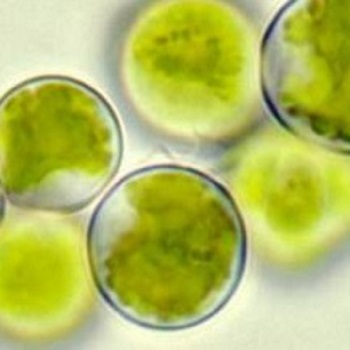Comprehensive Sustainability Assessment of Two Algae Biorefinery Concepts: Final Reports on EU Projects now Available

Many innovations regarding the cultivation and conversion of algae make new usage concepts possible. Many approaches currently focus on the production of high-value algae components for use in products including nutraceuticals and pharmaceuticals.
The sustainability of two of these concepts was recently investigated in two EU-funded research projects with a total budget of €10 million. In the D-Factory project, the well-established industrial cultivation of the microalga Dunaliella salina was optimised, resulting in an expansion of the product range from one to nine items. The PUFAChain project identified new strains of algae for the production of polyunsaturated fatty acids (PUFAs) and established and optimised their cultivation and processing.
The integrated life cycle sustainability assessments which took account of all product life cycles from “cradle-to-grave”, included life cycle assessments, assessments of local environmental impact, life cycle costing, and social life cycle assessments. These were supplemented by analyses of potential risks with regard to technology, market, regulation and policy. This resulted amongst others in the following findings for a sustainable design of algae biorefinery concepts:
1. All current algae cultivation and processing methods require high inputs. However, at the current state of development, environmental burdens can be reduced by up to 90%. A comprehensive sustainability assessment can help to realise this potential.
2. Sustainability is dependent on the use of:
- CO2 from flue gas (without extending the usage duration, e.g. of fossil fuel power stations)
- As much own renewable energy as possible (particularly solar)
- Land which is not suitable for agricultural us
- Sites with no water scarcity
3. Feed production from by-products can greatly reduce ecological and social burdens through avoiding land use, and can even generate some additional profits.
4. Direct competition with products manufactured by using fermentation should be avoided, as this can pose a major challenge for algae-based processes.
5. Regulatory boundary conditions are important: Small and medium-sized enterprises should receive support with approval procedures as required, and long-term policy strategies must take account of potential competition with solar energy for land.
The cultivation and use of algae has great potential to become an important component of the bioeconomy if the current dynamic technological development continues, provided that sustainability issues are dealt with.
The complete final reports of the environmental and sustainability assessments can be downloaded here:
Environmental assessment of Dunaliella-based algae biorefinery concepts
Integrated sustainability assessment of Dunaliella-based algae biorefinery concepts
Environmental assessment of algae-based PUFA production
Integrated sustainability assessment of algae-based PUFA production
+++++++++++++++++++++++++++++++++++++++
Contact Person:
Dr. Guido A. Reinhardt, Institut für Energie- und Umweltforschung (ifeu), project manager.
More information about the completed projects
D-Factory
In total, the D-FACTORY consortium consists of 13 research and industry partners from 8 countries: University of Greenwich (UK) (coordinator), A4F Algafuel SA (Portugal), Dynamic Extractions (UK), Evodos (Netherlands), Hafren Investments Ltd (UK), Instituto de Biologia Experimental e Tecnológica (Portugal), Institute for energy and environmental research Heidel-berg (Germany), In Srl (Italy), The Marine Biological Association (UK), NATECO2 GmbH & Co (Germany), National Technical University of Athens (Greek), Natural Beta Technologies Ltd (Israel), SP Technical Research Institute of Sweden (Sweden).
PUFA Chain
In total, the PUFAChain consortium consists of 9 research and industry partners from 4 coun-tries: Georg-August-Universität Göttingen (Germany) (coordinator), A4F Algafuel SA (Portu-gal), MAHLE InnoWa GmbH (Germany), Natex Prozesstechnologie GesmbH (Austria), Cremer OLEO GmbH & Co. KG (Germany), Fraunhofer IZI-BB (Germany), Institut für Energie- und Um-weltforschung Heidelberg (Germany), Stichting Dienst Landbouwkundig Onderzoek (Nether-lands), EurA Consult AG (Germany).
In total, the PUFAChain consortium consists of 9 research and industry partners from 4 coun-tries: Georg-August-Universität Göttingen (Germany) (coordinator), A4F Algafuel SA (Portu-gal), MAHLE InnoWa GmbH (Germany), Natex Prozesstechnologie GesmbH (Austria), Cremer OLEO GmbH & Co. KG (Germany), Fraunhofer IZI-BB (Germany), Institut für Energie- und Um-weltforschung Heidelberg (Germany), Stichting Dienst Landbouwkundig Onderzoek (Nether-lands), EurA Consult AG (Germany).
